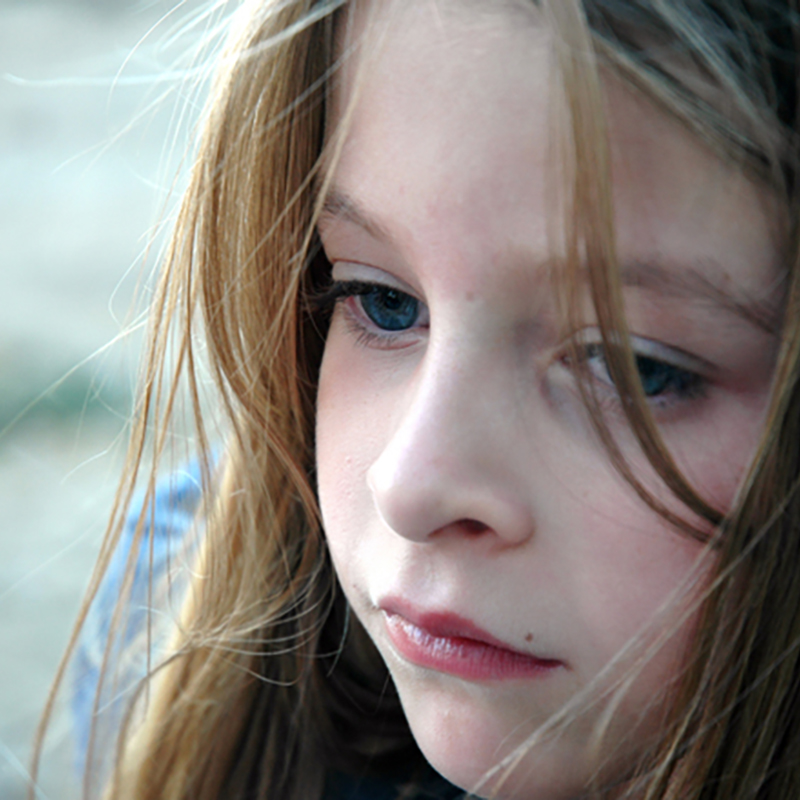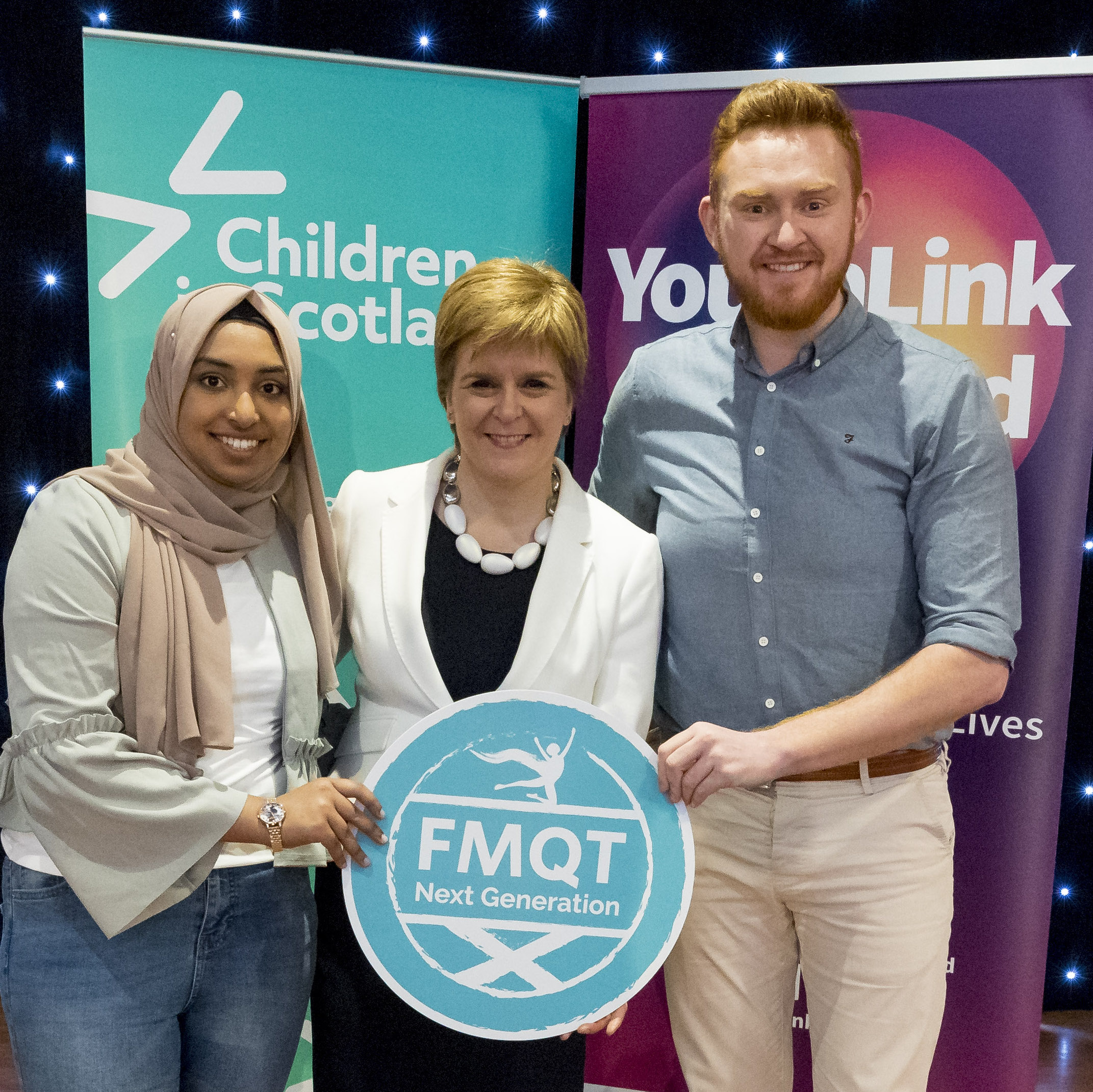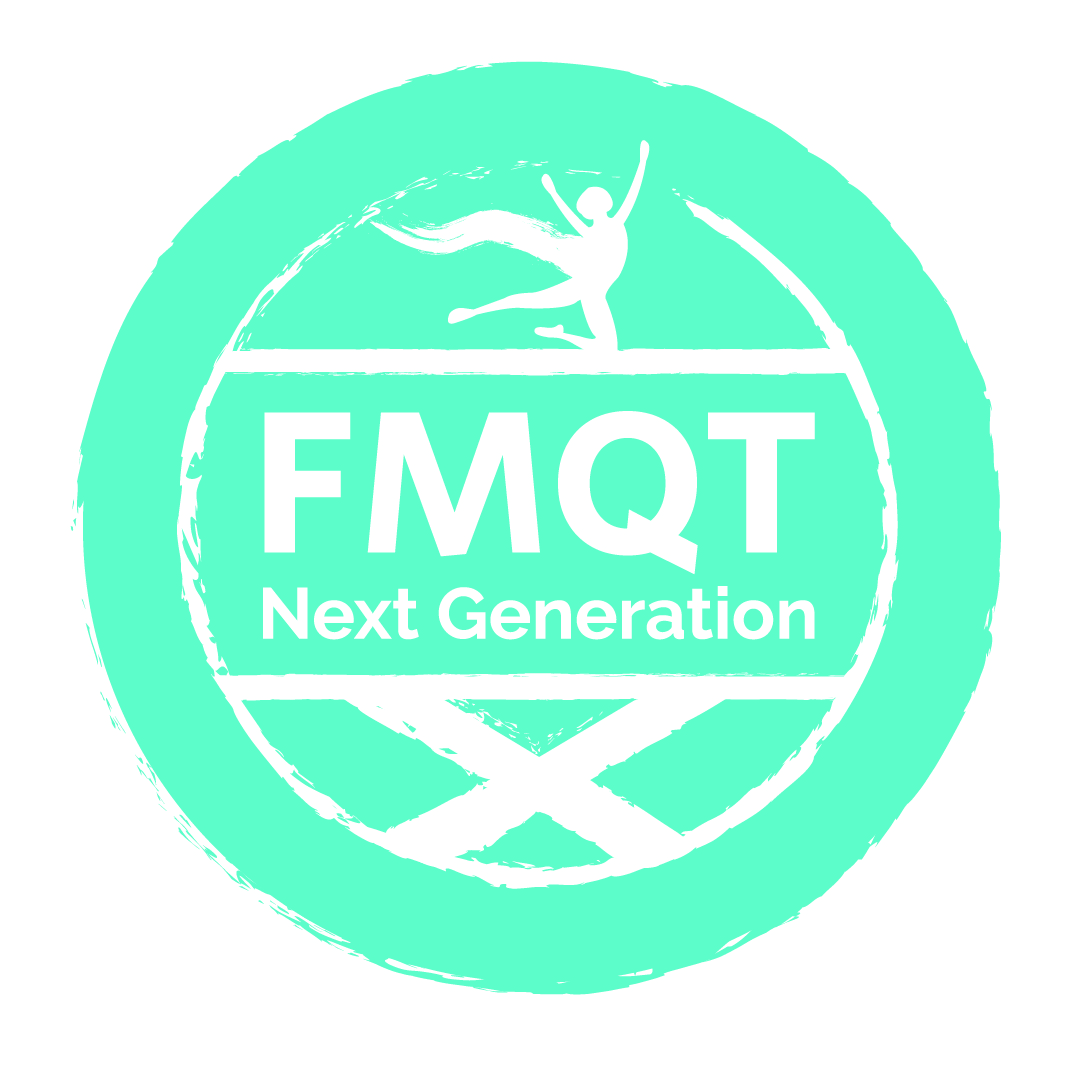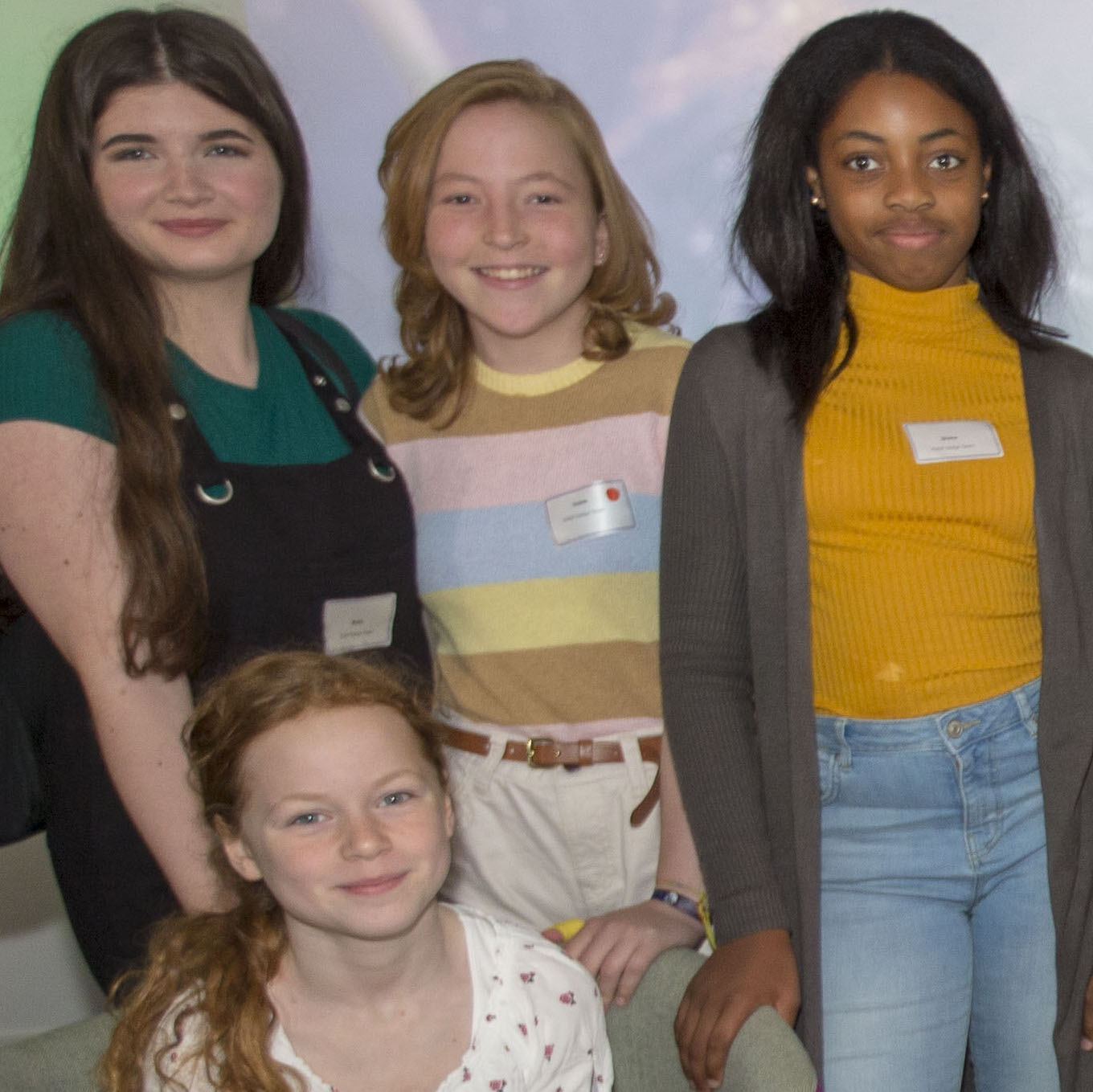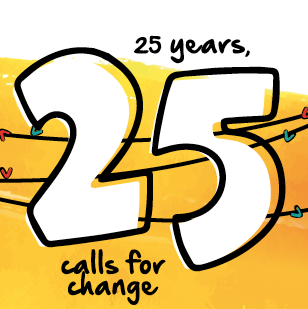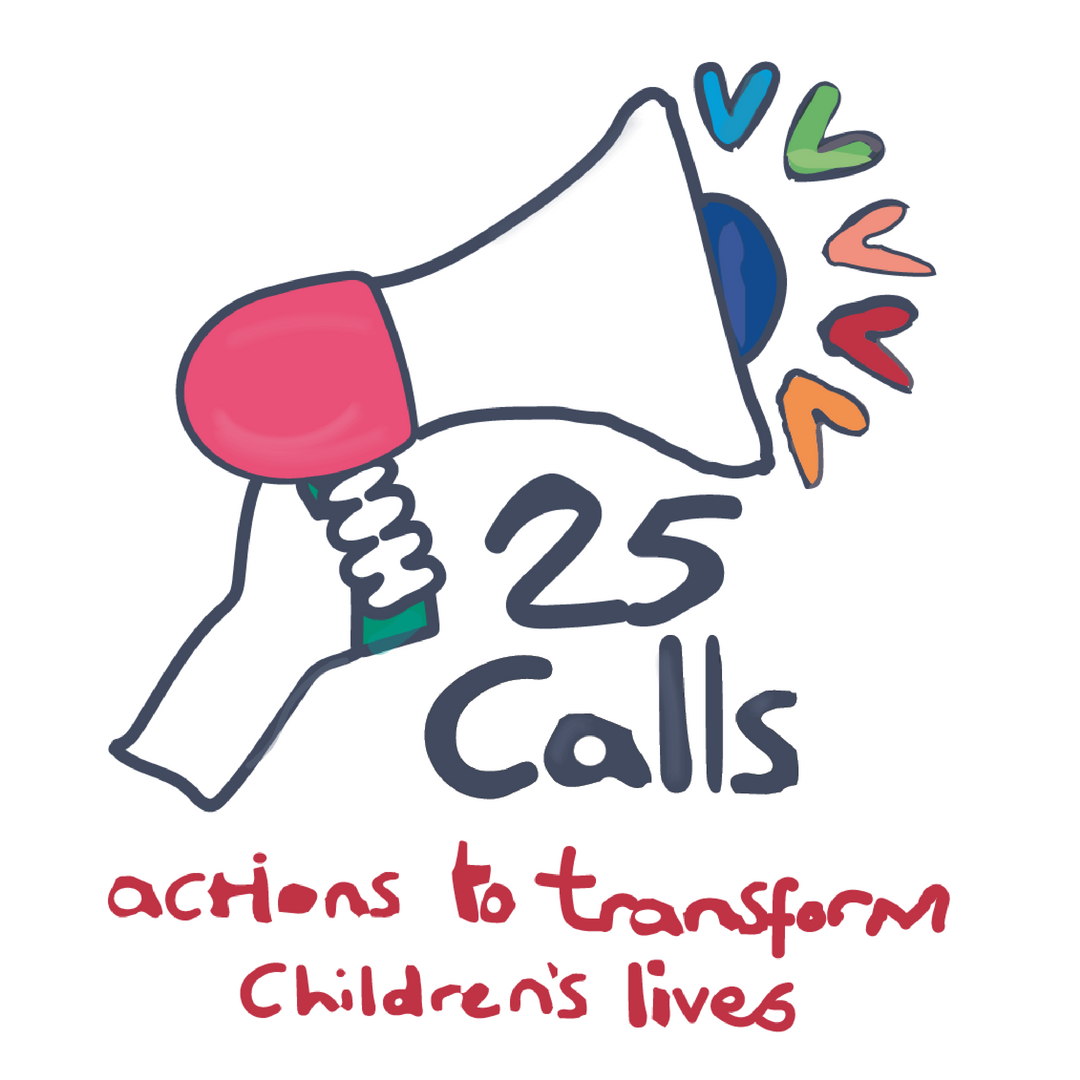The First Minister, Nicola Sturgeon, has told an audience of young people about ‘horrific’ comments on her social media channels, why her government is not doing well enough on mental health, that she would still ‘dingy’ Donald Trump – and why she hated her first job.
She was taking part in First Minister’s Question Time Next Generation, held in Edinburgh earlier this week and run by national charities Children in Scotland and YouthLink Scotland.
Mental health services
Mental health was again a key theme for FMQT Next Generation. Riana, aged 19 and from West Dunbartonshire, asked whether the Scottish Government would invest more money in mental health support services. Despite being through the system of CAMHS, she was not diagnosed until aged 18 by adult services. She told the First Minister that the current system had failed her.
The First Minister said that a lot of work and investment was going in to this area and there were now more counsellors in schools, but admitted that: “On mental health we still don’t do enough of that and we don’t do it well enough.”
President Trump
Co-host John Loughton reminded the First Minister of a 2016 TV interview with Gary Tank Commander actor Greg McHugh in which she said she would ‘dingy’ Donald Trump. With the UK state visit of the president planned for June, was that still the case?
“If it was me, Nicola Sturgeon, ordinary citizen, it would definitely be ‘dingy’,” she said. “As First Minister I’m not going to refuse to meet the President of United States should that arise. I wouldn’t hold back from telling him where I disagreed with him.”
Brexit
Responding to questions about the protection of current EU laws post-Brexit, the First Minister hit out at hardline Brexiteers, arguing that they see advantage in reducing protections for workers and the environment. She described Jacob Rees Mogg as “coming from the 17th century” and said that some politicians in the UK are guilty of “exploiting people’s fears”.
Independence
On the subject of a second independence referendum, Nicola Sturgeon responded by saying the decision had to rest ultimately with the Scottish people, given the significant changes in circumstance since the Brexit vote:
“The future of the country should not be decided by me or Theresa May, it should be decided by the people of Scotland. If people want to accept Brexit and stay in the UK that is one thing but it should not be forced upon us, we should have the ability to choose.”
Personal questions
The First Minister revealed that she sleeps five hours a night. She also talked about her first job selling tattie scones around doors in Dreghorn, which she hated so much that she used to get her dad to do it instead.
And, giving an insight into what she does to relax, she said she likes to “switch on, to switch off” by watching Coronation Street.
Social media
On negative and bullying behaviour on social media, the First Minister said she tries not to look at the “tickertape” of negative comments on her Twitter.
“If I was going to go and search my name on Twitter it would probably be pretty horrific what came up.”
She told the audience that we all have a responsibility to stand up against bullying online and accused those companies who make millions from running social media platforms of not taking their responsibilities as seriously as they should.
Responding to a question about advice she would give to young people feeling pressurised by social media, she said she that as a young person at school she was very shy and didn’t have a lot of confidence.
She gave this advice to the young people in the audience: “Be yourself and believe in yourself, and don’t let people bring you down.”
Trans rights
Ethan, aged 20 from LGBT Youth Scotland, pressed the First Minister on the current timetable for amending the Gender Recognition Act (GRA), which would allow transgender people to self-declare their gender, instead of going through the process of medical approval and certification.
There have been concerns about whether the changes will be made by 2021. Ethan asked, on behalf of trans young people in Scotland, for her guarantee that the law would change.
The First Minister reiterated her support for trans rights and said the legislation was on track to be amended by 2021. She said she understood that people may be frustrated but that it was better for it to take longer and “get it right”.
Addressing the controversy around changes to the GRA, the FM said she was disappointed the debate had become so polarised. It was her job to find a way through by making sure all sides were heard, she added.
She also highlighted the depth of transphobia in Scotland. Questioned on press reports of splits in her cabinet about the issue, she said: “That’s part of leadership – you deal with divided opinion."
Speaking after the recording, First Minister Nicola Sturgeon said:
“The decisions taken by government and other policy makers will have a profound impact on the lives of today’s young people and those in the future. That’s why it is vital that their voices are heard and their views listened to.
“It’s important that we empower children and young people to have their say on the issues that they face – the FMQT event is a great way to do that and I was delighted to have the opportunity to be involved for a second time.”
Jackie Brock, Chief Executive of Children in Scotland, said:
“This second event proves why FMQT Next Generation is quickly becoming a fixture of political debate in Scotland, and we are particularly grateful to the young people on the project Design Team for how they have led and shaped it.”
“It again made clear that young people’s insights are invaluable as we celebrate their contribution to our national life and discuss the improvements we must make for them. The challenge for the Scottish Government now is to keep listening to them in a meaningful way and take forward the vital issues they are raising through the project.”
Tim Frew, Chief Executive of YouthLink Scotland commented:
“Brexit, mental health, the cost of transport, free school meals, these are just some of the issues that directly affect young people. It’s important that we take the right of children to be heard, seriously.
“FMQT Next Generation is a national platform where young people can give their views and concerns directly to Scotland’s most powerful politician. As part of the legacy of Year of Young People we want to ensure that youth participation at both national and local level is embedded into the decision process for government, parliament and councils.”
Zander, a member of the young people’s Design Team, who shaped FMQT Next Generation, explained why he wanted to be involved in creating a platform for children’s views to be heard:
“Because I was worried about all the big decisions that are being made without asking kids what they will want in the future.”
FMQT Next Generation aims to empower children and young people to take part in political debate and provide a genuine opportunity for them to hold adult decision-makers, including the First Minister, to account.
It was the second FMQT Next Generation following its successful the launch last September as a new platform for 8-to-26 year olds.
The project, funded by the Scottish Government, builds on the participation work of YouthLink Scotland and Children in Scotland, with the aim of putting children and young people at the heart of policymaking and decisions affecting them nationally and locally.
(ends)
Media contacts:
Sarah Paterson, YouthLink Scotland, spaterson@youthlinkscotland.org or
Chris Small, Children in Scotland, csmall@childreninscotland.org.uk
Notes to editors
If you would like to find out more about the project visit:
click here to visit YouthLink Scotland or click here to visit Children in Scotland
Films:
Click here to see the playlist on YouTube
Educational Resource:
Click here to download YouthLink Scotland's resource
More information:
Take a look at a range of different blogs that have been written in the run-up to the first FMQT Next Generation:
Sally Henry, a member of the Online Design Team has written a blog about her experience of being involved in the project. Click here to hear her story so far.
Click here to learn more about the design team and how they've been involved in Emma's blog, or click here to hear from Tamsin, a member of the online design team, as she shares her experience of why she wanted to be involved in #FMQTNextGeneration.
Click here to view the #FMQTNextGeneration videos on YouTube and hear from young people why they wanted to get involved!
Children in Scotland
Giving all children in Scotland an equal chance to flourish is at the heart of everything we do.
By bringing together a network of people working with and for children, alongside children and young people themselves, we offer a broad, balanced and independent voice. We create solutions, provide support and develop positive change across all areas affecting children in Scotland.
We do this by listening, gathering evidence, and applying and sharing our learning, while always working to uphold children’s rights. Our range of knowledge and expertise means we can provide trusted support on issues as diverse as the people we work with and the varied lives of children and families in Scotland.
YouthLink Scotland
The national agency for youth work. It is the voice of the youth work sector in Scotland.
- It is a membership organisation and is in the unique position of representing the interests and aspirations of the whole of the sector both voluntary and statutory.
- YouthLink Scotland champions the role and value of the youth work sector, challenging government at national and local levels to invest in the development of the sector.
- YouthLink Scotland represents over 100 organisations, including the 32 Local Authority Youth Work Services and all major national voluntary youth work organisations, which support over 300,000 young people in achieving their potential.
- YouthLink Scotland promotes a positive image of Scotland’s young people and seeks to promote their value to communities and society.
